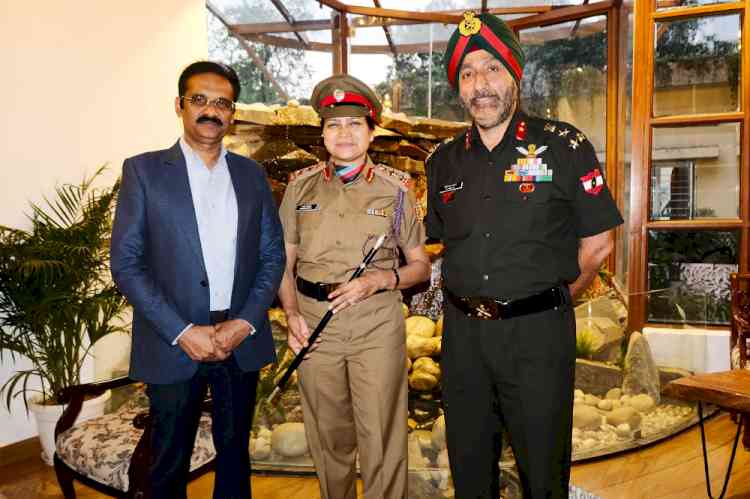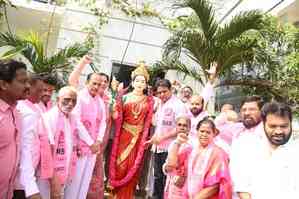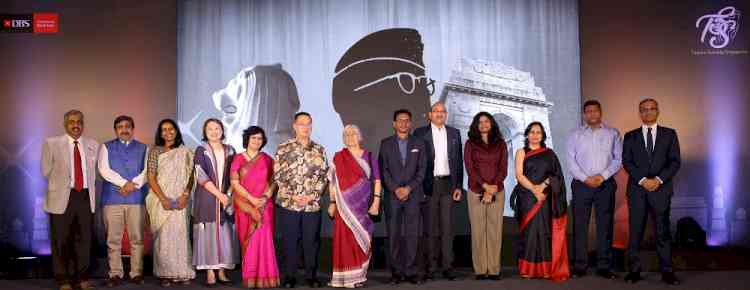Digital technology will boost administrative revolution to give a fillip to growth: Amitabh Kant
Author(s): City Air NewsNEW DELHI: The quiet administrative revolution that has been taking place in the country during the last two years will receive a shot in the arm by the increasing use of digital technology which in turn will give...

NEW DELHI: The quiet administrative revolution that has been taking place in the country during the last two years will receive a shot in the arm by the increasing use of digital technology which in turn will give a fillip to growth. This was stated here on Thursday by Mr.Amitabh Kant, CEO, NITI Aayog, while addressing an interactive meeting on ‘The Business of Government: Learnings from Global Experiences’, organized by FICCI with the support of NITI Aayog, Bharti Institute of Public Policy of ISB and the IBM Center for The Business of Government.
Mr.Kant enumerated the various initiatives of the government to change the 19th century mindsets, where archaic rules and regulations were the order of the day and move into the 21st century through vast and transformative decisions.
He said the government has moved away from inputs and processes to focus on outcome targets of various ministries. Outcomes are now monitored regularly through a dashboard, an IT user interface, created by NITI Aayog. Any deviations from the assigned outcome targets are brought to the notice of the PMO, which then suggests appropriate remedial steps.
Mr. Kant said that the government has leveraged technology to link up all States with the Centre through ‘PRAGATI’ (Pro-Active Governance and Timely Implementation), an integrative and interactive platform for addressing the common man's grievances and monitoring important programmes and projects. Under this initiative, the Prime Minister links up with all
Chief Secretaries of States and Indian ambassadors overseas to monitor projects online once every fortnight. This initiative, he added, was breaking all walls between the States and the Centre. He cited the example of the speedy approvals accorded to 191 of 197 railway projects for the States.
He said that India was passing through the biggest technological revolution which will make data analytics critical for delivery of service to the people. Leakages in government schemes are now vanishing and in due course all benefits provided by the government will go straight to the intended beneficiary’s account.
Mr. Sidharth Birla, Past President, FICCI, in his address, pointed out that the platform was organized to engage with the Government’s administrative machinery to discuss best practices in effective delivery and governance. For sustainable delivery and improved productivity and performance, there is an urgent need to build capacity in administrative machinery. “We need
to deepen appreciation of the urgency of implementation of administrative reforms. The opportunity cost of inaction needs to be highlighted as inefficiency of government is the single largest cost imposition on the nation,” he said.
Prof. Rajendra Srivastava, Dean, Indian School of Business, said that it was the business of government to nurture and make commitments to human capital, be pro-active and forward looking, anticipate with speed and adjust to developments in the external environment. Above all, he said, there was a need for resolve to do the right things even if there was a personal cost.
Mr. Daniel J. Chenok, Executive Director, IBM Centre for The Business of Government, in his remarks, said that the Center’s mission was to do research and interact with academics across the world for determining actionable steps for citizens’ engagement in the design, production and delivery of public services. He said in the last two decades, the Centre has interviewed 600 government leaders in the US and the rest of the world and produced 350 reports. Academics worldwide use the Center’s research to teach and added that the Center would continue its collaboration with the NITI Aayog, ISB and FICCI.

 cityairnews
cityairnews 
















